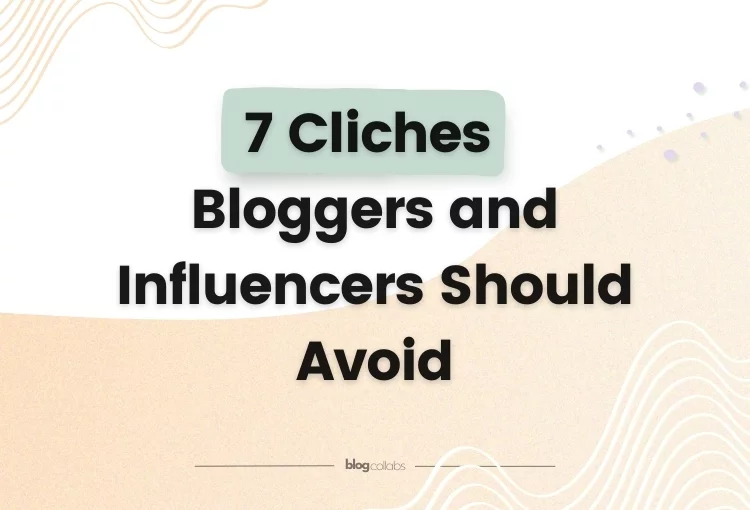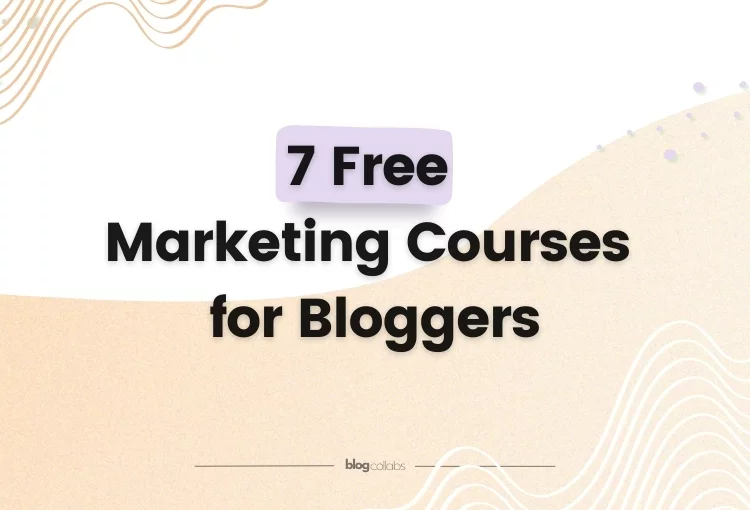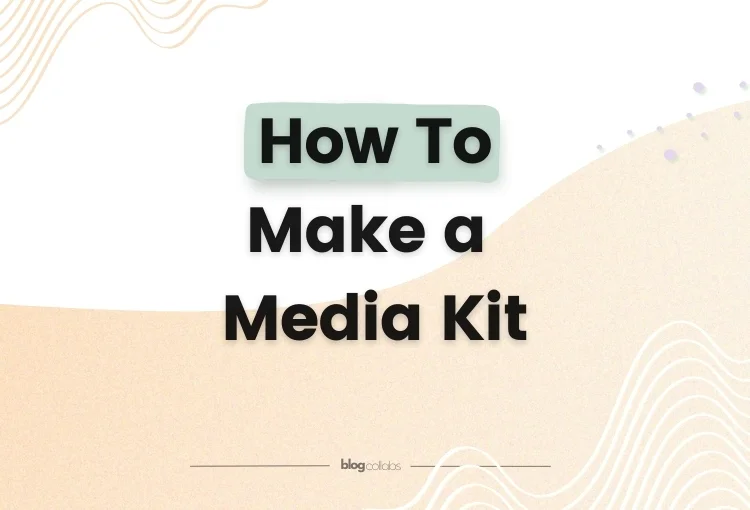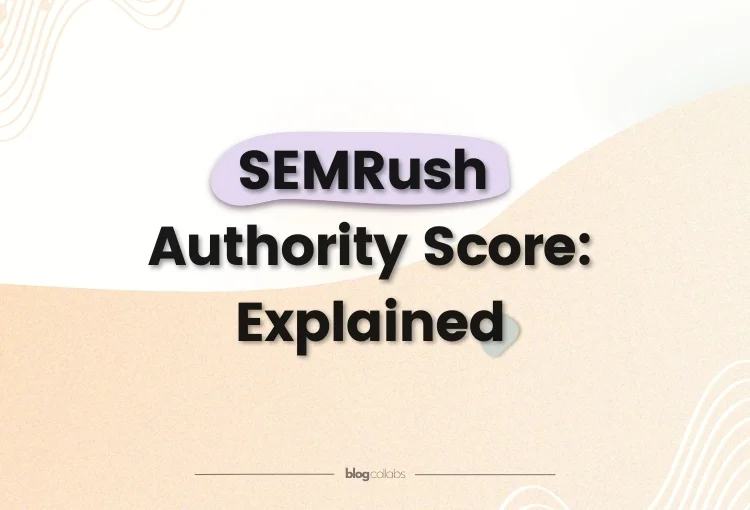How Long Should A Blog Post Be In 2024?
How long should a blog post be? This is the first question you ask before writing a blog. It’s also one of the most difficult to answer. I Googled the question before starting this guide and found an amalgamation of different responses. Some believe the sweet spot lies at around 600 words while others scoff at that idea and claim it’s far too short. A vocal majority will tell you to aim for at least 1500 words – but you might see that as too long for every blog post.
We’re one paragraph in, and it’s already getting a bit confusing!
Figuring out the ideal blog post length isn’t as straightforward as some “experts” will try to make it. You should consider a host of factors before deciding on the word count for your blogs if you want to see better search engine performance and more clicks. I’ve made this guide to go over all of those factors and to explain a bit about optimal blog post length for 2024 and beyond.
Ideal Blog Length in 2024
Back in the day, everyone raved about “short” blog posts. You’ve probably seen people claim to aim for between 300-600 words in each post. It was seen as the sweet spot; long enough to be engaging but short enough to maintain attention spans. 10 years ago, most of the top-ranked blog posts fit somewhat within this range or averaged out at around 800 words.
Oh boy, how things have changed.
Multiple credible sources suggest your word count should be a lot higher than this in 2024. Semrush states your posts need to be within 1,500 and 2,500 words. It says this range gives you enough words to cover topics in depth while optimising the content for SEO. Wix backs this up, suggesting the same word count range with the “sweet spot” being at around 2,450 words. Both quote their research as the factors influencing this ideal word count range – but what do the stats say?
The chart below is from Orbit Media and demonstrates the drastic shift in the average blog word count since 2014. It’s only able to present data up to 2023 as 2024 isn’t over yet! Based on the findings, it’s fair to assume the average word count will increase yet again.
That little sentence above the chart is key; blog posts are 77% longer than they were a decade ago. Blogs had an average length of 1,427 in 2023 and they generally get longer year after year (with one slight exception in 2022).
Looking at this data – and taking into consideration what other credible sources are stating – you should aim for anywhere between 1,400 and 2,500 words as the “best” blog post length in 2024.
How Long Should a Blog Post Be?
The obvious answer is to quote what we’ve already said. However, it’s not as simple as that!
Look, I wish I could sit here and give you a proper answer so you know exactly how long your blog posts should be. That’s not how the internet works. Different forms of content align with certain word count lengths better than others. It also depends on how frequently you wish to post blogs.
The same article from Orbit Media also revealed a few telling stats about publishing frequency and “strong results”. The more often you publish, the more likely you are to see good results from your posts.
57% of daily bloggers see great results compared with just 25% of weekly ones. Keep this in mind when thinking about the length of your blog posts. Is it possible to constantly churn out 1,400 – 2,500 words of quality content every day – or even every couple of days? Some people manage it while others have more success shortening their blog posts and publishing more individual posts per week.
It all depends on what you’re writing about, who your audience is and how often you need to post content. Can you get away with shorter posts if it allows you to blog every day? Yes – and this could be a successful approach for many of you reading this. Don’t fall into the blogging cliche of copying what everyone else does or following very strict rules and word counts.
I know you’re going to hate me for saying this but a blog post should be as long as it needs to be! It all revolves around the content and what makes sense for the specific article. This sounds confusing right now, but I promise it will make more sense as I talk about the factors influencing blog post lengths later in this guide.
Is 500 Words Too Short for a Blog?
If you’ve ever done any form of content writing for businesses or other blog websites, you’ll know a lot of them ask for 500 words as the standard length. Why? Maybe it’s to keep the costs as low as possible or perhaps it’s due to the historic trend of shorter articles being successful.
Based on what we’ve spoken about so far, is 500 words too short for a modern blog?
Ooof. It’s tough to say. Honestly, if we’re talking about word count length from an SEO perspective, 500 words are on the border of being too short. Redefine Your Marketing notes that any blogs under 500 words are seen as “thin content”, meaning they don’t get picked up well by search engines. The graphic below indicates the 500-word mark is right on the cusp of being “the minimum” length any blog post should be.
Following this, a Semrush study from 2022 provided a heavy analysis of blog content length and discovered articles with 500 words or less don’t get shared by audiences. 78% of articles under 500 words aren’t shared at all – though the study does comment that the key to successful content is whether or not the topic is fully covered.
As such, 500 words is usually not a great length to aim for as it’s hard to fully cover a topic in so few words. Let’s say you have a 100-word introduction and a 100-word summary – you’ve only got 300 words to play with for the body of the content. That’s nowhere near enough to give the reader everything they’re hoping for!
A 500-word blog only works when you’re talking about something very specific and niche that can be covered in that amount of words.
Benefits of Longer Blog Posts
By now, you can see we’re leaning more towards the idea of “longer” blog posts. Everyone seems to be raving about them and recommending them – but why? What are the benefits of writing more words in your blogs?
We’ve touched on a few key benefits already, but here’s a summary of why long-form content is king in 2024:
Maintain Audience Engagement
It’s a well-known fact that audience engagement improves your SEO – hell, Google even admits this in a blog post on how to engage your audience. An engaged audience is more likely to interact with your content and stick around. Longer blog posts are perfect for this – your audience is given an in-depth post that they wish to read, so they’re sticking around for much longer than they would if your content was short.
Moreover, longer blog posts are likely to be more detailed. This means your readers can get all the information they’re looking for on a particular topic. The problem with shorter content – as noted earlier – is that you often struggle to cover everything. It leaves the audience wanting more, so they leave your site and look for more information. If you’re giving them everything they need, they’re more likely to remain engaged and come back for more. Hence, your content ranks a lot better and you generate more web traffic.
Rank Higher In Search Engines
There’s genuinely a direct correlation between more words and a higher-ranking position in search engines. A study was done by a company called serpIQ looking into this. Unfortunately, the company is now defunct but we’ve managed to find the results in the chart below:
As you can see, the more words you produce, the higher the rankings you’re likely to place. That’s partially down to the engagement factor, but you should also think about what longer content lets you do from an SEO perspective:
- You’ve got more space to incorporate key ranking factors like H1s, H2s or H3s
- You can use bullet points to make your content more digestible and sneak into snippets
- It opens the door for more images or videos
- You have more time to include loads of different keywords or phrases without worrying about keyword stuffing
In other words, longer content lets you create the ideal SEO article! It’s much harder to get all the right ranking factors aligned with short-form content which is probably why we’ve seen such a huge increase in the average word count length over the past decade.
Enjoy More Social Media Shares
Search engines aren’t the only way to drive readers to your content. Social media helps you find new audiences and gets your posts shared far and wide. Forbes explains that blog posts with over 1,500 words get 68% more shares on Twitter (X) and 22% more on Facebook than shorter posts.
Longer content is more shareable, likely because readers find it more valuable. What are you more likely to share; a short post that doesn’t cover a topic in depth or a longer one with all the information you could hope for?
Factors Influencing Blog Post Length
We’re approaching the latter stages of this guide and now it’s all about the factors influencing blog post length. You know it’s smart to aim between 1,400 and 2,500 words – but where should you fall within that scale? Also, when might it make sense to produce slightly shorter or longer content?
The best advice I can give is to look at these elements before writing a blog as they’ll slowly help you realise the ideal word count for your specific piece:
Target Audience
Who is your target audience? You must know this before writing blog posts as it determines how successful each article will be. For example, let’s say you’re a travel blogger and your audience is 18-35 year olds with a passion for travelling. They’re looking for informative guides about travel destinations or tips when travelling abroad. Your content will need to be very rich and expansive, covering wide topics and including as much detail as possible. Every piece will be a guide of sorts and you’re likely to produce 2,000 words or more to satisfy this audience.
Conversely, what if your blog is more news-based? Maybe you’re posting about the latest news stories for a particular sport. Here, your content is likely to be a lot shorter as you’re simply providing quick snippets of information to keep your audience informed on what’s going on.
The Post’s Purpose
This links to what I said about your target audience. Think about the purpose of your post, is it meant to:
- Provide a rich understanding of a detailed topic
- Offer quick bursts of insights
- Entertain with social commentary or your opinions
- Be educational
The goal of your content influences how long it should be. If the purpose is to give a brief overview of something or provide a quick update, then it doesn’t need to be as long as the averages suggest.
Rival Content
How long is similar content from rival blogs? This is a big consideration as you’re looking at the content you’ll be competing with. If the top few search results all have content of around 1,500 words, then that’s a good word count to aim for.
Conversely, if the highest-ranking content similar to yours averages around 600 words, then you can aim for this. It may seem like a short piece of content, but the results show this is clearly what ranks well.
User Feedback
I’ll say this is the most underrated factor influencing blog word count. You can look at everything else, but what does your audience want to see? Reach out to your readers, open up a comments section below your posts and ask them how they feel about your content. Request feedback so you know the style of articles they’re looking for and what you can do to improve.
You’ll quickly see if your readers enjoy long-form content or prefer shorter bursts. Not only that, but they can help you figure out how to mix things up. They’ll tell you what type of content they prefer to spend a long time reading and when they’d rather have a quick piece to breeze through. Always keep your audience in mind as they’re the ones who’ll determine your blog’s success.
Tips for Determining Blog Post Length
Gather all the information we just spoke about and use these tips to set the ideal blog length for your posts:
- Carry out competitive research – SEO best practices suggest Googling your blog topic and selecting the top 5 posts to analyse. See their average word count and it gives you an idea of the ballpark you should aim for.
- Make sure you cover everything – Plan your post and be sure you’re covering everything that needs to be covered within the topic. If your post does this, it will be all-encompassing and engaging. You’ll also get a rough guide of the word count based on your first draft and can edit it down if necessary.
- Ask the audience – As mentioned before, asking your audience helps you see what they’re hoping to read from your blog posts. You’ll instantly see if you’ve got it all wrong and they prefer a longer/shorter article than what you’ve been planning.
- Use web analytics to track engagement – Similarly, check your analytics to see how your previous articles perform. Is there a pattern you can spot? For instance, are audiences leaving your website before reading 20% of your article? If so, that shows your word count is way too high. On the other hand, if your content is being 100% read but viewers are leaving your site very quickly, it shows it’s not rich enough and must be extended.
The Ideal Word Count in 2024 Is…
Between 1,400 and 2,500 words. That’s what I’m settling on, but please think about the factors influencing blog post length before blindly going ahead and falling within this region. It all depends on your audience and the purpose of your blog content.
If you’re looking to kickstart your blogging journey and want to find brands to collaborate with, then click here to sign up for Blog Collabs today. We’ll help you connect with partners to build a vast digital presence and benefit from monetising your blog. It’s super easy to do; give us your email and we’ll send opportunities your way every week!







